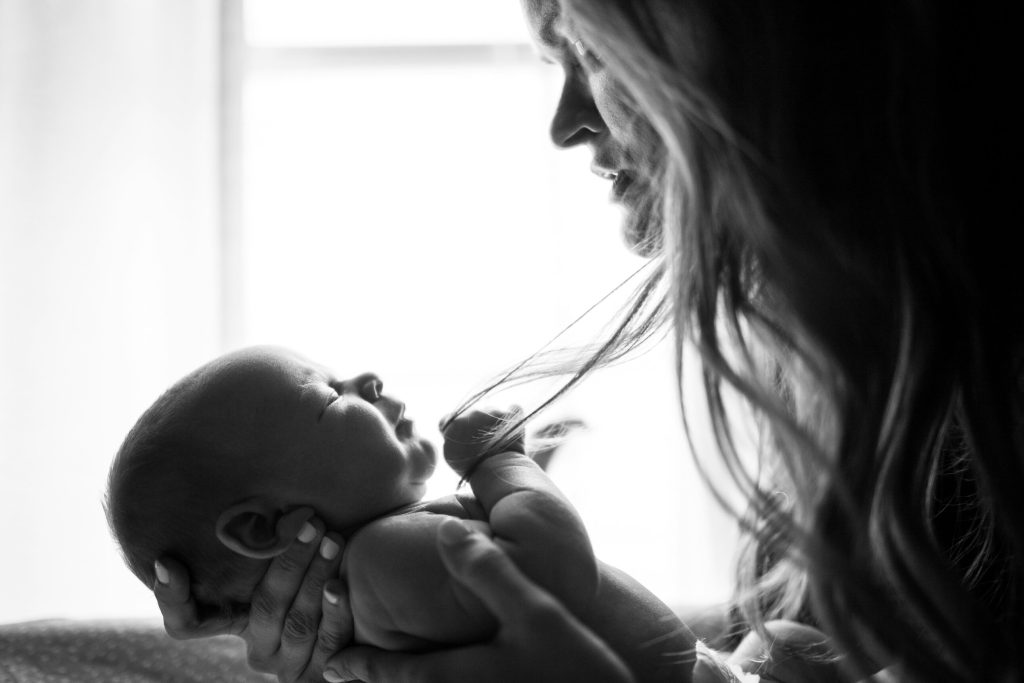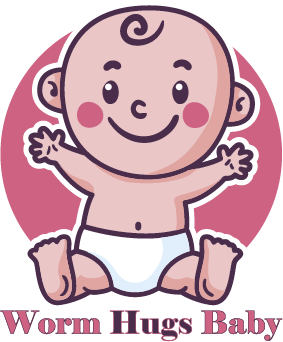
As a new parent, you’ve probably found yourself obsessively googling “Is my baby supposed to be doing this yet?” 🤔 The world of baby milestones can be both exciting and overwhelming. From that first precious smile to those wobbly first steps, each achievement feels like a monumental victory. But what if your little one isn’t hitting those milestones “on time”?
Relax, take a deep breath. Every baby is unique, and development isn’t a race. However, understanding what to expect and how to support your baby’s growth can make your parenting journey smoother and more enjoyable. In this guide, we’ll explore the fascinating world of baby milestones, debunk common myths, and provide you with practical tools to nurture your child’s development. Let’s dive into the month-by-month guide of key milestones, discover how you can be your baby’s best cheerleader, and learn why tracking these magical moments is so important.

Key Baby Milestones: A Month-by-Month Guide
Physical Development Milestones
Baby’s physical development is a fascinating journey filled with exciting milestones. Here’s a month-by-month breakdown of key physical achievements:
| Age | Physical Milestones |
| 0-3 months | Lifts head, follows objects with eyes, grasps objects |
| 4-6 months | Rolls over, sits with support, reaches for objects |
| 7-9 months | Sits without support, crawls, starts to pull up |
| 10-12 months | Cruises furniture, may take first steps |
Remember, every baby develops at their own pace, and these are general guidelines.
Cognitive and Language Milestones
As babies grow, their cognitive abilities and language skills rapidly develop:
- 0-3 months: Recognizes familiar faces, coos and gurgles
- 4-6 months: Babbles, responds to sounds, shows curiosity about surroundings
- 7-9 months: Understands simple words, plays peek-a-boo, begins to imitate sounds
- 10-12 months: Says first words, understands simple instructions, points to objects
Social and Emotional Milestones
Social and emotional development is crucial for a baby’s overall growth:
- 0-3 months: Smiles at people, recognizes parent’s voice
- 4-6 months: Laughs, enjoys social play, may show anxiety around strangers
- 7-9 months: Distinguishes between familiar and unfamiliar people, shows preferences
- 10-12 months: Shows affection, may be shy or anxious with strangers, imitates gestures
When to Be Concerned About Missed Milestones
While variation in development is normal, certain signs may warrant professional attention:
- Not responding to loud sounds by 3 months
- Not grasping objects by 3 months
- Not smiling at people by 3 months
- Not rolling over in either direction by 6 months
- Not laughing or making squealing sounds by 6 months
- Not trying to get objects that are out of reach by 7 months
If you notice any of these signs or have concerns, consult your pediatrician. Early intervention can make a significant difference in addressing potential developmental issues. Next, we’ll explore how you can actively support your baby’s development through various activities and interactions.

Supporting Your Baby’s Development
Creating a Stimulating Environment
A stimulating environment is crucial for your baby’s development. Here are key elements to incorporate:
- Visual stimulation: Colorful toys, mobiles, and contrasting patterns
- Auditory stimulation: Soft music, gentle sounds, and varied textures
- Sensory experiences: Different fabrics, textures, and safe objects to explore
| Age Range | Stimulating Activities |
| 0-3 months | Black and white patterns, soft music, gentle massage |
| 3-6 months | Colorful toys, rattles, textured objects |
| 6-12 months | Stacking cups, shape sorters, soft blocks |
Engaging in Interactive Play
Interactive play strengthens the bond between you and your baby while promoting cognitive and social development. Try these activities:
- Peek-a-boo
- Singing nursery rhymes with hand movements
- Gentle tickling games
- Rolling a soft ball back and forth
Reading and Talking to Your Baby
Exposure to language is vital for your baby’s communication skills. Make it a habit to:
- Read board books with simple pictures and words
- Narrate your daily activities
- Respond to your baby’s coos and babbles
- Use facial expressions and gestures while talking
Encouraging Movement and Exploration
Supporting your baby’s physical development is essential. Provide opportunities for:
- Tummy time to strengthen neck and upper body muscles
- Reaching for toys to improve hand-eye coordination
- Crawling and cruising in a safe, baby-proofed space
- Supervised water play for sensory exploration
Providing Proper Nutrition
Nutrition plays a crucial role in your baby’s overall development. Consider these guidelines:
| Age | Nutrition Recommendations |
| 0-6 months | Exclusive breastfeeding or iron-fortified formula |
| 6-12 months | Introduction of solid foods alongside breast milk or formula |
Remember to consult your pediatrician for personalized nutrition advice. With these supportive strategies, you’ll be well-equipped to foster your baby’s growth and development across all domains.

The Importance of Tracking Milestones
Early Detection of Potential Issues
Tracking baby milestones plays a crucial role in identifying potential developmental concerns early on. By closely monitoring your baby’s progress, you can:
- Recognize delays or irregularities in development
- Seek professional advice promptly if needed
- Initiate early intervention strategies for better outcomes
Early detection allows for timely support, which can significantly impact your child’s future development. Here’s a comparison of early vs. late detection:
| Early Detection | Late Detection |
| Timely intervention | Delayed support |
| Better long-term outcomes | Potential for persistent challenges |
| Reduced parental stress | Increased anxiety and uncertainty |
| More treatment options | Limited intervention choices |
Celebrating Your Baby’s Achievements
Tracking milestones isn’t just about identifying potential issues; it’s also an opportunity to celebrate your baby’s growth and development. By acknowledging these achievements, you:
- Boost your baby’s confidence and self-esteem
- Create positive reinforcement for continued learning
- Strengthen the parent-child bond through shared joy
Adjusting Parenting Strategies
As you track your baby’s milestones, you gain valuable insights into their unique developmental path. This knowledge allows you to:
- Tailor activities to your baby’s current abilities
- Provide appropriate challenges to stimulate growth
- Adapt your parenting approach to meet changing needs
By staying attuned to your baby’s progress, you can create a nurturing environment that supports their individual developmental journey.

Common Myths About Baby Milestones
Debunking the “One-Size-Fits-All” Approach
When it comes to baby milestones, many parents fall into the trap of comparing their child to others or adhering strictly to developmental charts. However, it’s crucial to understand that each baby develops at their own pace. Here are some key points to consider:
- Every child is unique
- Developmental ranges are more important than specific ages
- External factors can influence development
| Myth | Reality |
| All babies should crawl by 8 months | Some babies may skip crawling entirely |
| Babies should say their first word by 12 months | The normal range for first words is 9-14 months |
| Walking should happen by the first birthday | The typical range for walking is 9-18 months |
Understanding Individual Differences
Babies develop skills at different rates due to various factors:
- Genetics
- Environment
- Personality
- Physical characteristics
It’s essential to focus on your baby’s progress rather than comparing them to others. Celebrate each milestone as it comes, recognizing that your child’s journey is uniquely their own.
The Truth About Late Bloomers
Some babies may take longer to reach certain milestones, but this doesn’t necessarily indicate a problem. Late bloomers often catch up quickly once they start developing a particular skill. However, it’s important to:
- Regularly communicate with your pediatrician
- Trust your parental instincts
- Seek early intervention if you have concerns
Remember, while milestones are important indicators, they don’t define your child’s overall development or potential. Each baby’s journey is a unique adventure, filled with its own set of triumphs and challenges.

Tools and Resources for Monitoring Development
Baby Development Apps
In the digital age, parents have access to a wealth of information at their fingertips. Baby development apps are excellent tools for tracking milestones and gaining insights into your child’s growth. Here are some popular options:
- BabyCenter
- The Wonder Weeks
- Glow Baby
- WebMD Baby
These apps offer features such as:
- Milestone trackers
- Growth charts
- Feeding logs
- Sleep schedules
- Photo journals
| App Name | Key Features | User Rating |
| BabyCenter | Personalized content, expert advice | 4.8/5 |
| The Wonder Weeks | Developmental leap predictions | 4.7/5 |
| Glow Baby | Comprehensive tracking tools | 4.6/5 |
| WebMD Baby | Medically reviewed information | 4.5/5 |
Pediatrician Check-ups and Screenings
Regular check-ups with your pediatrician are crucial for monitoring your baby’s development. These visits typically include:
- Physical examinations
- Growth measurements
- Developmental screenings
- Immunizations
- Opportunity to discuss concerns
Developmental Assessment Tools
Professional assessment tools help identify potential developmental delays or concerns. Some commonly used tools include:
- Ages and Stages Questionnaires (ASQ)
- Denver Developmental Screening Test
- Bayley Scales of Infant and Toddler Development
These assessments evaluate various developmental domains, such as motor skills, language, and cognitive abilities.
Support Groups and Online Communities
Connecting with other parents can provide valuable support and information. Consider joining:
- Local parenting groups
- Online forums (e.g., Reddit’s r/Parenting)
- Social media groups focused on baby development
These communities offer a platform to share experiences, ask questions, and receive advice from fellow parents and experts.
Conclusion

Baby milestones are exciting markers of your child’s growth and development. From their first smile to their first steps, each achievement is a cause for celebration. Remember that every baby develops at their own pace, and it’s crucial to focus on overall progress rather than comparing your child to others.
By understanding these milestones, supporting your baby’s development through play and interaction, and keeping track of their progress, you can ensure your little one is thriving. If you have any concerns about your baby’s development, don’t hesitate to consult your pediatrician. Enjoy this magical journey of watching your baby grow and reach new milestones – it’s a precious time that passes all too quickly!





